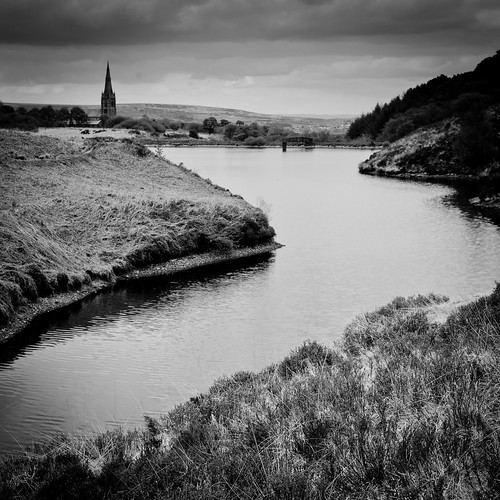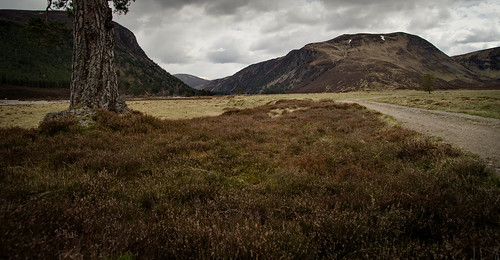I can clearly remember an autumn night, a very small boy, a very large bicycle, a very bad road. On a long climb over rough setts I had reached the moors above my home town [Bolton]. Some spirit of exploration lured me on and on; the road went up and up through the windy street of Belmont village. Daylight was almost spent, but I had an oil lamp which I proudly lit. The moors became dark and bulky, the road was very rough and quite deserted. Then I began to go downhill, faster, faster. There were trees, the silent stonework of a gunpowder factory in ruins. I stopped and was suddenly frightened. My light was very small. Shadows crowded about me, darted from the trees, from the gaunt sinister ruin. I was terribly lonely. With tears streaming down my face I hurried back, panting and see-sawing up the long hill. My first night ride away from the streets.
The year was 1911, and I was seven years old.
A celluloid collar, above which an eager face scrutinised an exciting world in the process of being explored. On the dusty road between Cheadle and Wilmslow an occasional cart rumbled on iron-tyred wheels. The summer day was hot, the little woodland paths along Alderley Edge were shady and quiet.
I found the Copper Mines, gated, but easily entered by a schoolboy. There was a piece of candle on a ledge which I managed to light, and with a quickening heart penetrated deep into the caverns. Suddenly I felt lonely and afraid. I was lost. In panic I turned and stumbled, and away went my bit of candle. The lovely world suddenly became a fearful place of ghouls and nameless shapeless Things, which seemed to be clutching towards me. Tears came. I remember striving to calm myself as I groped my way along until the distant faint filter of light restored my spirits. A few minutes later I was discovering Artists’ Lane, then the most beautiful place in the world.
England was a wonderful country that hot, summer day, very quiet and peaceful. Away in France vast armies were butchering young lives away.
The year was 1916, and I was twelve years old.
My bicycle was a heavy roadster, but we were bosom friends. I had long trousers, a crumpled open-necked shirt. There was a hole in the seat of the trousers, worn and enlarged by the saddle, where the leather had parted from the structure. I had reached Llandudno, I had a pound in my pocket and two more days to go. The Promenade was my evening saunter.
The next morning I left Llandudno with twelve shillings and an attaché case on my carrier. In it were towel, soap, slices of bread and butter and a tin of crab, all joggling together with every bump in the road. I was tremendously happy on a fresh road leading round Penmaenmawr to Carnarvon. I stood gazing at the great old castle, where children sang Welsh airs to sightseers for pennies. I thought to join them. Later I sweated up Llanberis Pass, very fine and very dusty, and came to Bettws-y-Coed. My purse was slender, so I went supper-less to bed.
Next day the awful road to Ruthin became a nightmare of dust, hills and potholes. On the fierce descent towards the town my one brake failed and I survived at the cost of lacerations, a badly buckled wheel, and a most distressing rent down the back of my trousers. But I reached home, penniless, fairly happy, my hunger kept at bay with a pound of apples. The tin of crab was still with me – I had no opener !
That was in 1920, and I was sixteen.
I was never much of a cyclist, though my heart has been given to cycling since I was seven years old, and I am fifty-four now. But I never raced with the lads, nor even longed for ‘rags at timber’ [sic]. Speed was not my pigeon. Track meetings left me cold. Track riding was, indeed, my chief failing, but not the smooth cinders or concrete of the stadium.
It was in 1931 and I was one of the vast army of unemployed. Nor had I any money. To my eternal shame I obtained a ‘travelling card’ by which I signed on at various labour exchanges as I went round looking for work, drawing my dole en-route. I was, in reality, a tramp. True I had my cycle and camping kit. There was no work in the Wye Valley. No building jobs going on the Roman Wall, no employment in the Yorkshire Dales or at the Lakes.
It was obviously necessary to penetrate further afield. One day I searched the length of Glen Feshie and found – a Golden Eagle soaring in the skies. The next day with twopence in my pocket and a tyre tied up with a rag I did a ‘blind’ to Fort William to draw my seventeen shillings. I spent a week coming home from Fort William.
More ambitious plans were scotched by a suspicious Government official. Then one day I became a slave. People said I was lucky to have a job, but when Spring was in the air and the curlews whistling over the moors, and I was not there to hear, I wondered if I was – lucky.
There is a lot more of this to tell, and maybe, I hope, there’ll be lots to tell in the future. We shall see.


